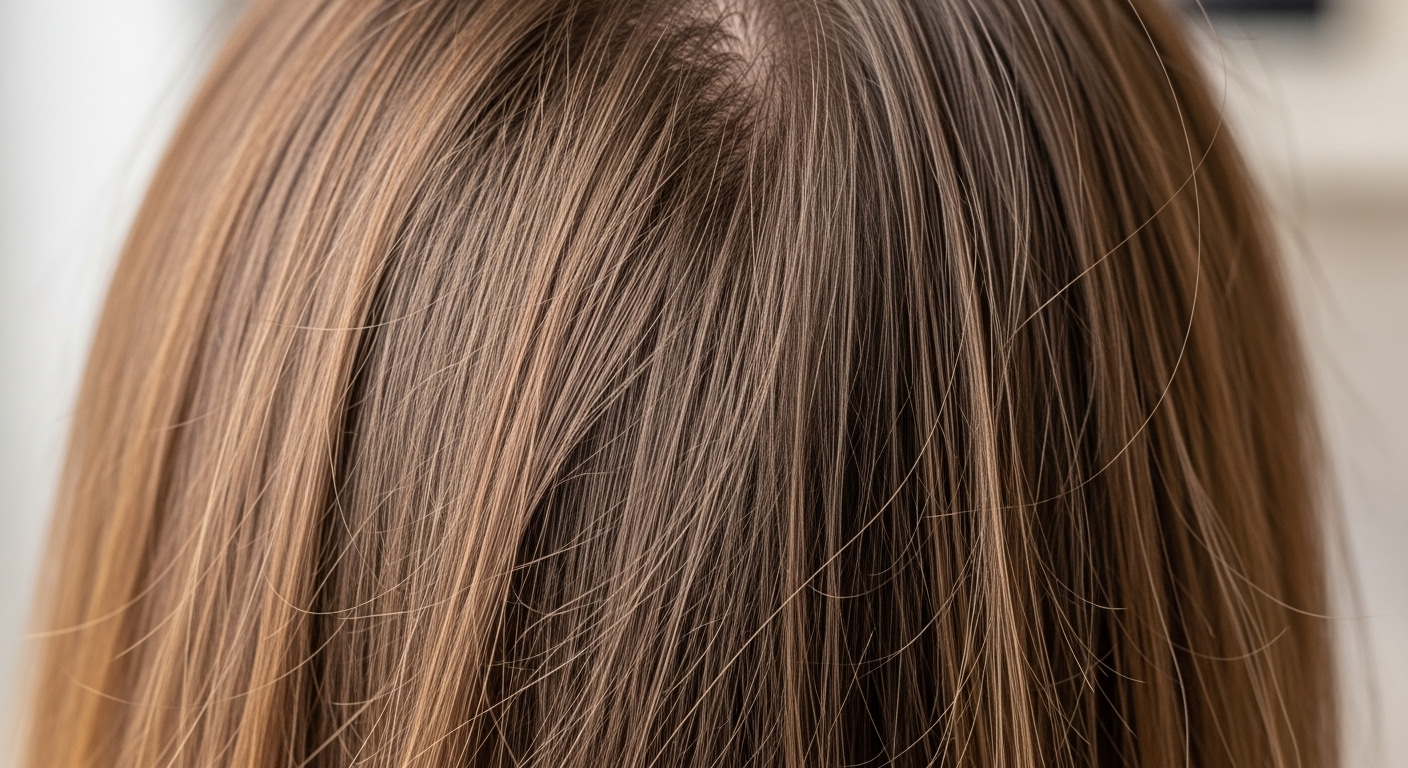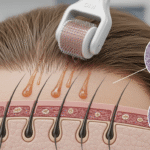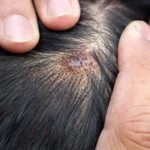If you’re dealing with hair loss after a perm, you’re not alone. This common issue can result from the harsh chemicals used during the perm process, leading to weakened hair shafts and breakage. How to Stop Hair Loss After a Perm? Fortunately, by following the right aftercare routine and using the appropriate treatments, you can …
If you’re dealing with hair loss after a perm, you’re not alone. This common issue can result from the harsh chemicals used during the perm process, leading to weakened hair shafts and breakage.
How to Stop Hair Loss After a Perm? Fortunately, by following the right aftercare routine and using the appropriate treatments, you can stop further hair loss and even restore your hair’s health. In this post, we’ll explain the causes of hair loss after a perm and offer expert solutions to help you keep your hair strong and healthy.
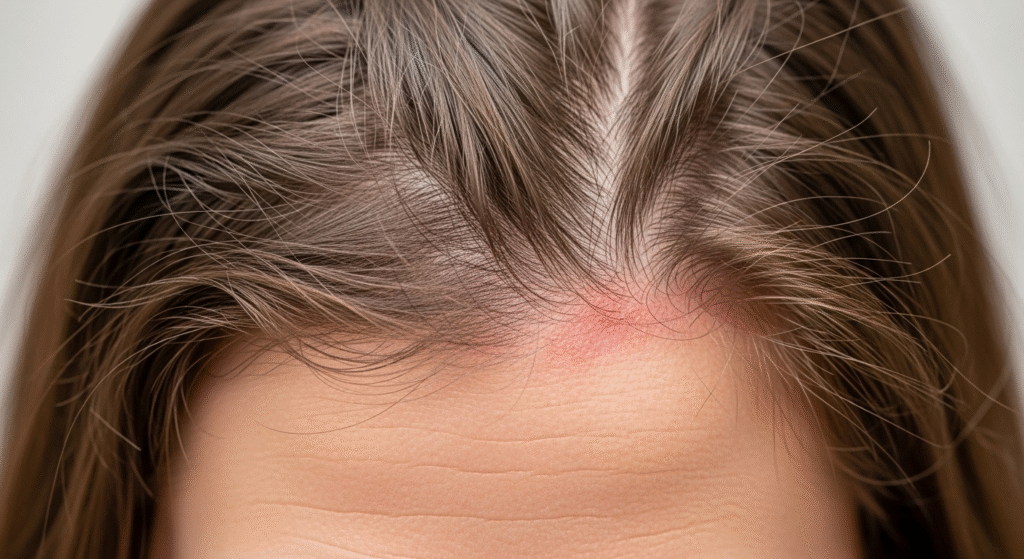
Why Does Hair Loss Occur After a Perm?
The Science Behind Perming and Hair Health
A perm works by breaking and reforming the disulfide bonds in your hair to give it a new curl or wave pattern. While this chemical process can create long-lasting, beautiful curls, it also weakens the hair shaft, especially if your hair is already fragile or damaged. The perm solution alters the structure of your hair, making it more prone to breakage. Over time, this weakening can result in hair loss.
Common Causes of Hair Loss After a Perm
- Chemical Damage: The chemicals used in perms can strip the hair of its natural moisture and oils, leading to dryness and brittleness. This makes your hair more prone to breaking.
- Over-Processing: Leaving the perm solution on for too long can lead to over-processing, which further damages your hair.
- Improper Aftercare: Not following the right post-perm hair care routine can exacerbate hair loss. Using harsh shampoos, styling tools, or skipping regular hair treatments can stress your hair even more.
- Pre-Existing Hair Conditions: If your hair was already thinning or damaged before the perm, the process could worsen the condition, leading to further hair loss.
How to Prevent Hair Loss After a Perm
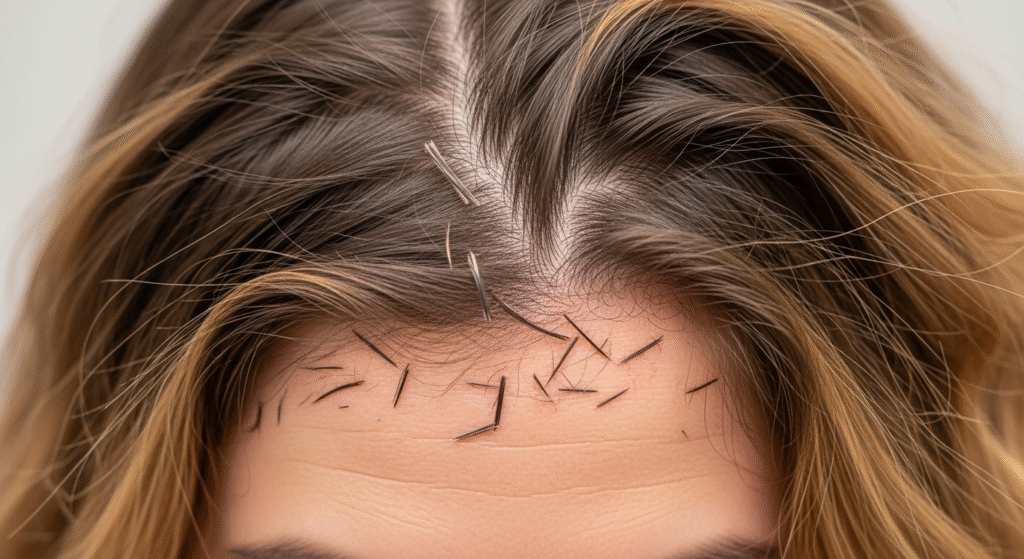
Choose the Right Hair Care Products
After a perm, it’s essential to switch to gentle, nourishing hair care products. Here’s what you should look for:
- Sulfate-Free Shampoos: Sulfates can strip your hair of its natural oils, making it more fragile. Choose sulfate-free shampoos designed for chemically treated hair to keep your strands hydrated.
- Deep Conditioners: A deep conditioner will restore moisture and prevent dryness. Look for conditioners with proteins like keratin or silk that can help strengthen and repair your hair.
- Leave-In Treatments: Use leave-in conditioners or oils such as argan oil or jojoba oil to help lock in moisture and reduce frizz.
How to Stop Hair Loss After a Perm? Proper Hair Care Routine
Maintaining the right routine is crucial for preserving the health of your perm-treated hair:
- Gentle Washing: Wash your hair no more than 2-3 times a week to avoid stripping it of moisture. Always use lukewarm water, as hot water can damage the hair shaft.
- Avoid Excessive Heat Styling: After a perm, avoid using hot tools like straighteners or curling irons. The added heat can cause further breakage. If you must use heat, always apply a heat protectant spray beforehand.
- Air Drying: Try to let your hair air dry rather than using blow dryers, which can further dry out your hair. If you need to speed up the process, use a blow dryer on a cool setting.
Protecting Your Hair from Damage
- Avoid Tight Hairstyles: Styles that pull on your hair, such as tight ponytails or braids, can stress your hair and cause it to break. Opt for loose, gentle styles instead.
- Protect Your Hair from the Sun: UV rays can damage your hair, causing it to become dry and brittle. Wear a hat or use a UV protectant spray when outdoors.
Expert Recovery Tips for Healthy Hair After a Perm
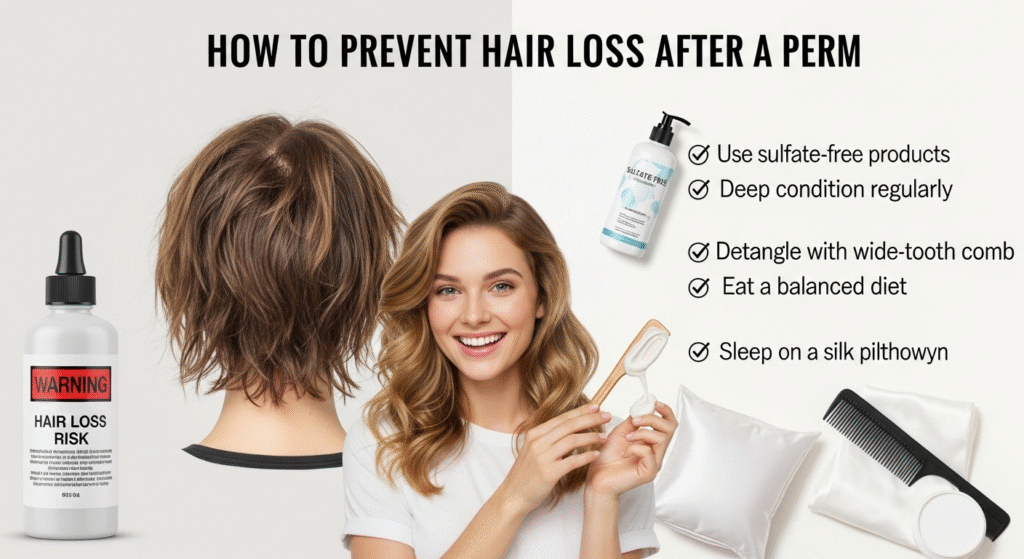
Hydration and Nourishment
To help your hair recover from the damage caused by a perm, keeping it hydrated is essential:
- Use Moisturizing Products: Products rich in natural oils and humectants (like glycerin) can help your hair retain moisture.
- Protein Treatments: Protein treatments help to rebuild the hair shaft and restore strength. Use a treatment once a week to help your hair recover from the damage caused by the perm.
Hair Masks and Treatments to Regrow Hair
Consider incorporating nourishing hair masks into your routine to speed up recovery:
- DIY Hair Masks: Create homemade masks using ingredients like honey, avocado, and olive oil, which provide intense hydration and nourishment.
- Professional Treatments: If you prefer professional solutions, ask your stylist about salon treatments that can restore your hair’s strength, such as keratin treatments or hydrating hair glosses.
When to Seek Professional Help
If you notice severe thinning or balding after a perm, it’s essential to consult a dermatologist or trichologist (a specialist in hair and scalp health). They can help identify the cause of your hair loss and recommend appropriate treatments, which may include:
- Scalp Microneedling: A treatment that stimulates hair regrowth by creating tiny punctures in the scalp.
- Hair Restoration Treatments: In some cases, PRP (Platelet-Rich Plasma) therapy may be recommended to promote hair growth.
When Can You Expect Hair to Grow Back After a Perm?
Understanding the Hair Growth Cycle
Hair grows in cycles, and it can take time for hair to grow back after experiencing loss or damage. Typically, the average hair growth rate is about half an inch per month. If you’re following the right aftercare routine and treating your hair with care, you can expect some improvement within a few months.
Safe Recovery Timeline
Here’s a general timeline for regrowing hair after a perm:
- First 1-2 Weeks: During this time, your hair may still be weak and prone to further damage. Avoid styling and focus on moisturizing and hydrating.
- 1-2 Months: You should begin to notice some improvement in hair texture, as well as a reduction in breakage. Continue to follow a gentle hair care routine.
- 3-6 Months: Hair regrowth should become more noticeable. Regular treatments, protein masks, and healthy habits will aid in strengthening your hair.
Expert Opinions on Managing Hair Loss After a Perm
Patient Testimonials and Success Stories
Sarah, a 28-year-old, shares her experience: “After my perm, my hair started falling out, but after switching to a sulfate-free shampoo and applying protein treatments, I started seeing results in just two months. My hair feels much healthier now.
FAQs
How long does it take for hair to stop falling out after a perm?
It can take anywhere from a few weeks to several months for hair to stop falling out after a perm, depending on the damage and your hair care routine. If hair loss continues, consider seeing a specialist.
Can I continue perming my hair after experiencing hair loss?
It’s generally not advisable to perm hair again immediately after experiencing hair loss, as it can exacerbate damage. Wait until your hair has fully recovered, and consult with a specialist before attempting another perm.
Are there any home remedies to stop hair loss after a perm?
Yes, you can use natural oils like coconut oil, castor oil, or olive oil to nourish and strengthen your hair. Also, DIY hair masks with avocado or honey can help restore moisture.
Does hair loss after a perm lead to permanent baldness?
No, hair loss after a perm is usually temporary and should improve with proper care. However, severe damage may require professional intervention to restore hair health.
How can I prevent my hair from breaking after a perm?
To prevent breakage, ensure your hair stays hydrated, avoid heat styling, and use gentle hair care products. Regular protein treatments will also help strengthen your hair.
Ready To Take Your Next Step
Book a Consultation with Our Hair Specialists Today
If you’re experiencing hair loss after a perm, don’t wait to seek professional help. Book a consultation with Dr. Uzma Irfan, an ISHRS-certified surgeon, to create a personalized plan for restoring your hair. Our specialists are here to provide effective solutions for regrowing and maintaining healthy hair.

